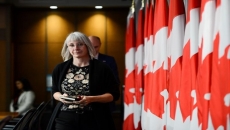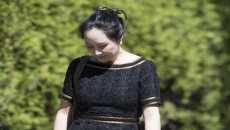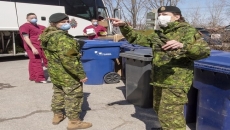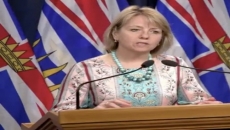The federal government will hire hundreds more temporary staff as part of a broader plan to tackle the growing backlog of requests for support and benefits from disabled veterans, many of whom are being forced to wait years for an answer.
The measure was announced Monday as new figures showed almost 50,000 claims for disability benefits were sitting in the queue at Veterans Affairs Canada at the end of March — an increase of nearly 10,000 from the same time last year.
The backlog has emerged as a major source of frustration and anger for the Canadian veterans' community, with advocates repeatedly warning that delays in processing applications add undue stress on injured ex-soldiers and exacerbate already difficult financial and medical conditions.
The decision to hire more staff — even on a temporary basis — is surprising, as the government has repeatedly pointed to other initiatives such as automating some decision-making functions and cutting down on paperwork as ways to speed up the process.
Those efforts will continue, but senior Veterans Affairs officials at a technical briefing Monday acknowledged the importance of immediately adding 300 more staff — at a cost of $87.7 million — to get the backlog under control, even as the department looks at new ways for the longer term. The briefing was provided to media on the condition that officials not be named.
"Veterans should receive the benefits and services they're entitled to in a timely manner, and the current backlog is unacceptable," Veterans Affairs Minister Lawrence MacAulay's spokesman Cameron McNeill said in a statement.
"The recent investment of nearly $90 million that our government made will allow Veterans Affairs to hire hundreds of new staff and speed up processes to ensure veterans receive faster decisions. This has been the minister's number 1 priority since he was sworn in."
The 300 new hires are in addition to around 160 adjudicators who were hired more than two years ago, when the backlog first started to explode in size. Those employees were also supposed to be temporary, but officials said they will be retained for the foreseeable future.
Veterans Affairs plans to have the new staff up and running by January, and hopes to have the backlog dramatically reduced by March 2022.
"We know that human resources alone will not eliminate those waiting beyond the service standards completely," the department added in a statement. "We must change the way we work. When we can, we will implement processes and digital solutions as fast as possible."
One change that is not being implemented — at least not right now — is the automatic approval of disability claims. Veterans' advocates have repeatedly called for such a measure for years, but those requests have taken on an added urgency in light of COVID-19.
Not only are approval rates for most categories of injuries —including post-traumatic stress disorder — extremely high, advocates say the pandemic has created new hurdles for processing claims because of the need for doctors' assessments and other requirements.
While senior Veterans Affairs officials said Monday research and analysis is being done on the idea, they did not give a timeframe for when such a concept could come to fruition.
The department reported another 3,000 applications were added to the queue in the three months leading up to March 31, bringing the total to 49,216.
Around 4,500 had been sitting in the queue for less than 16 weeks, which is the department's target for responding to requests for assistance. But about 22,000 had been waiting to be reviewed for longer than 16 weeks — nearly 2,000 more than three months earlier.
There were also around 22,000 claims deemed "incomplete" — a number that has nearly doubled since last year. Officials were unable to explain the increase in incomplete applications.






